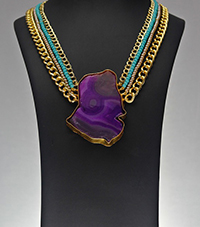 What do important documents, expensive jewelry and antique collectibles have in common? They’re all valuables you store in your home. Instead of worrying if they’ll be safe while you go on vacation or when contractors works on your home, protect them.
What do important documents, expensive jewelry and antique collectibles have in common? They’re all valuables you store in your home. Instead of worrying if they’ll be safe while you go on vacation or when contractors works on your home, protect them.
Rent a Bank Safe Deposit Box
For items that you don’t access regularly, consider a bank safe deposit box. It’s ideal for collectibles, photographs and coins, and your valuables will be protected from theft, fire, flood and other disasters when they’re stored safely in the bank vault.
There are several drawbacks to this storage solution. One is accessibility. You’ll only be able to retrieve or inspect your valuables during bank hours. Also, your box will be sealed when you or the owner dies, so it’s not the ideal solution for protecting your advance directives or will. The contents are not insured by the bank or Federal Deposit Insurance Corporation (FDIC) either. Your homeowner’s or renter’s insurance policy should cover your valuables, though, in the event that they are damaged.
Buy a Home Safe
Items you want to access regularly could be stored in a home safe. It sits in your closet, under the bed or anywhere in your home and protects your legal documents, passports, birth certificates, insurance policies, photos, passports and other items.
Select a small safe when you wish to protect jewelry, papers or coins. You’ll need a larger safe for large, bulky or odd-shaped items like artwork, guns and furs. Some models include adjustable shelves for increased versatility, and you can choose a safe that locks with a key, combination, electronic lock or mix of lock options.
Next, choose a safe that is certified to provide protection from a variety of threats.
- Theft and Vandalism
Purchase a safe with solid steel construction, pry-resistant doors and a bolt-down kit.
- Fire
Look for the Underwriters Laboratory (UL) symbol that shows your safe is fireproof, and be sure to latch and lock your safe to ensure it remains fireproof.
- Water
Live in your home for 30 years, and you have a one in four chance of suffering water damage. Select a safe with an ETL verification that certifies one of two things. Waterproof safes allow only eight drops of water to the safe when it’s submerged in water. Water-resistant safes keep the interior dry when the safe stands in six inches of water for one hour or when it’s sprayed with 1,000 gallons of water within a 15-minute time period.
Protecting your valuables should be a priority. Whether you choose a bank safe deposit box or home safe, be sure everything you own is insured. Contact your insurance agent today to purchase or review your coverage.





